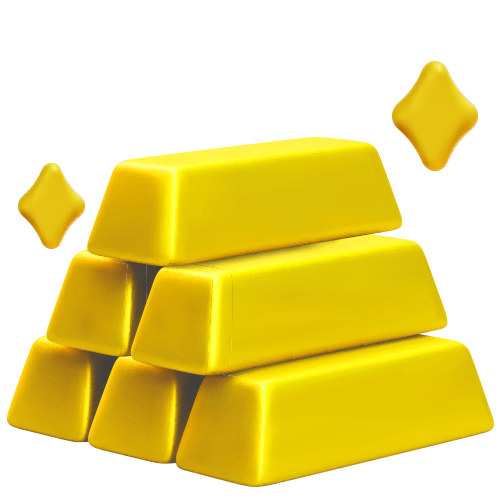Explore a wide range of products, including Forex, Commodities, Oil, and Stock Indices, to find the perfect fit for your trading needs. TradingMoreConfidence

What are Commodities?
What are Commodities?
Commodities are the buying and selling of goods in the primary economic sector, either in physical form or as derivative contracts. At TPF Markets, you can trade commodities such as gold, silver, and oil.
Gold and Silver
These valuable commodities have the highest demand worldwide. Their stable value makes gold and silver popular as a hedge against economic policy changes and currency fluctuations.
Oil Commodities
Oil is in high demand due to its essential role and price fluctuations, making it a widely traded instrument. The volatile price of oil is influenced by high demand, political issues, and production disruptions, providing excellent trading opportunities.
What are the benefits?
24-hour customer service
Get support for technical matters and account queries whenever markets are open.
Trading Flexibility
Trade commodities within a wide range of asset classes.
High Price Fluctuations
Comfortable trading without requotes with low spreads.
Big Leverage
Commodity trading using minimal capital with leverage up to 1:40
Commodity trading is the activity of buying and selling futures or spot contracts for commodities, such as gold, oil, wheat, or other metals, with the aim of profiting from market price fluctuations.
Commodity trading can be done through a futures exchange, where traders trade standardized futures contracts, or through the spot market where commodities are traded directly. Traders can use a broker to enter these markets.
A futures contract is an agreement to buy or sell a commodity at a future date at a specified price, while spot trading involves buying or selling a commodity outright with almost instant settlement.
Commodity prices are influenced by a variety of factors, including global supply and demand, weather conditions, government policies, geopolitical turmoil, and other economic factors.
Risk management in commodity trading involves the use of stop-loss orders, portfolio diversification, and a thorough understanding of the factors that can influence commodity prices.
Yes, the risks in commodity trading involve price fluctuations that can be triggered by various external factors. In addition, weather conditions, natural disasters, or government decisions can also significantly affect commodity prices.
Fundamental analysis involves evaluating the economic and geopolitical factors that influence commodity prices, while technical analysis uses historical price and volume data to identify trends and potential entry or exit points.
Yes, traders are generally charged a transaction fee or spread by the broker. In addition, there are also costs associated with futures contracts, such as margin and settlement fees. It is important to understand the cost structure before engaging in commodity trading.

Dream of becoming a trader?
Start with a small investment and
earn big profits!

